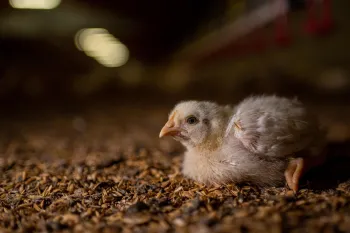BRUSSELS—Yesterday, the European Commission presented its long-awaited Vision for Agriculture and Food: Shaping together an attractive farming and agri-food sector for future generations. This communication sets out a roadmap for the direction of agricultural and food policy in the EU for the next five years. It will undoubtedly play a key role in shaping the reform of the Common Agricultural Policy post-2027, and it builds on recommendations outlined in the final report of the Strategic Dialogue on the Future of Agriculture, published in September 2024.
Dr Joanna Swabe, senior director of public affairs for Humane World for Animals Europe, formerly called Humane Society International/Europe, said: “The European Commission’s new Vision for Agriculture and Food places heavy emphasis on the interests of producers, and while Humane World for Animals welcomes the inclusion of animal welfare in this Communication, key questions remain. The Commission has committed to a targeted revision of existing animal welfare legislation, including an end to caged confinement for farmed animals, but the devil will be in the details. How long, for example, will the species-specific transition periods be? What kind of support will be given to farmers to help them shift away from farming systems such as cages and crates?
We are pleased that the Commission will consider introducing ‘targeted’ animal welfare labelling to address societal expectations with respect to animal products. We also appreciate that the Commission states its intention to pursue ‘a stronger alignment of production standards applied to imported products’ as regards animal welfare standards.
Another issue of relevance to Humane World for Animals concerns securing a sustainable protein supply for Europe. While the Vision states that the EU must consider the way protein is both produced and consumed, it is disappointing that there is no proposal for the development of an EU Action Plan for plant-based foods, something explicitly requested by the Strategic Dialogue report “to strengthen the plant-based agri-food chains from farmers all the way to consumers”.
Humane World for Animals contends that the EU needs greater protein diversification and self-sufficiency, and that increasing the production and consumption of plant-based foods is essential to achieve a successful transition to a more sustainable, efficient and humane food system. This would help the EU to achieve strategic autonomy with regard to plant proteins, much of which are currently imported for animal feed rather than direct human consumption. It would also provide opportunities for farmers to diversify their crops or to shift from animal farming to harness the opportunities of producing crops for the growing plant-based food sector. Finally, increasing plant-based protein crop production would improve soil quality, reduce emissions, and benefit biodiversity as well as human health.
